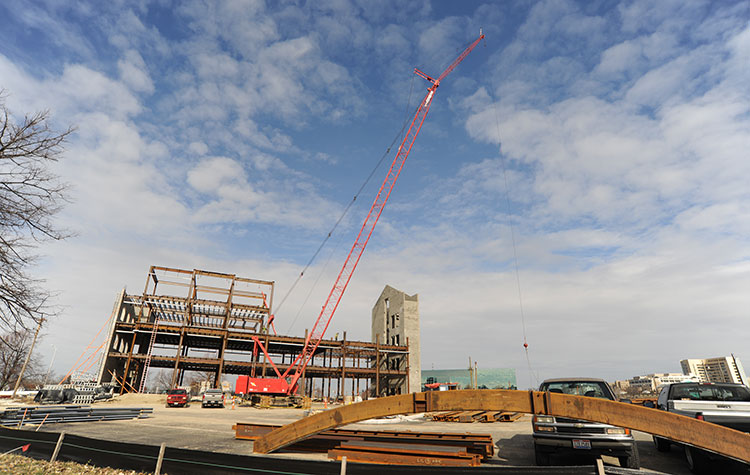Document Type
Article
Publication Date
12-2013
Publication Source
The Masonry Society Journal
Abstract
In the design of wood stud walls with brick veneer, current design building codes specify that the wood stud wall should resist all in-plane and out-of-plane loads (IBC 2009). For out-of-plane loads, this assumption is entirely justified as the brittle brick veneer will crack and lose its capacity to resist bending. For in-plane loads, the brick veneer is significantly stiffer than the wood shear wall, and the veneer is unlikely to crack before the wood shear wall reaches its allowable capacity. The assumption that the wood shear wall resists the entire load is based on the further assumption that the ties which connect the stud wall to the veneer will be sufficiently flexible to not transfer significant loads. Research has shown that this is not the case for typical US residential construction practices. The brick veneer can, in fact, resist significant in-plane loads.
Inclusive pages
15-27
ISBN/ISSN
0741-1294
Document Version
Published Version
Copyright
Copyright © 2013, The Masonry Society, 105 S. Sunset Street, Ste. Q, Longmont, CO 80501.
Publisher
The Masonry Society
Volume
31
Peer Reviewed
yes
Issue
1
eCommons Citation
Toubia, Elias Anis and Lintz, James M., "In-Plane Loading of Brick Veneer over Wood Shear Walls" (2013). Civil and Environmental Engineering and Engineering Mechanics Faculty Publications. 13.
https://ecommons.udayton.edu/cee_fac_pub/13
Included in
Civil Engineering Commons, Construction Engineering and Management Commons, Other Civil and Environmental Engineering Commons, Structural Engineering Commons




Comments
Article is made available for download from this repository with the permission of The Masonry Society (TMS) Journal.
Note: This paper received the outstanding paper award at The Masonry Society's 12th North American Conference in Denver in May 2015.